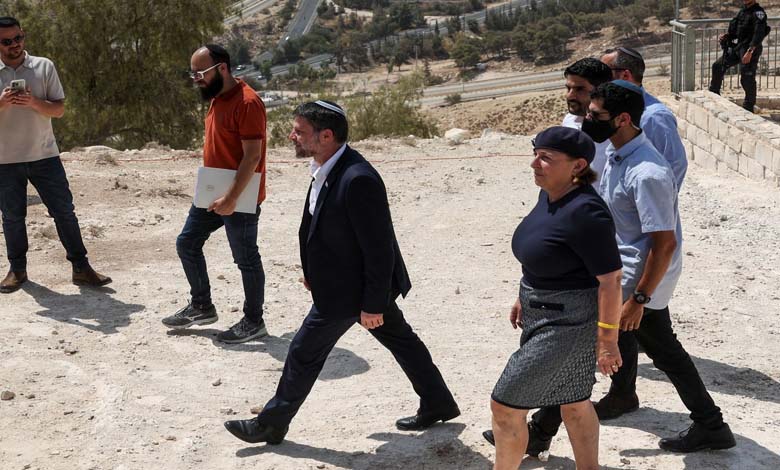Israel Approves a Major Settlement Project South of Jerusalem

The Israeli state has approved the construction of 1,300 settlement units in the Gush Etzion bloc, south of Jerusalem, despite earlier criticism from former U.S. President Donald Trump. According to Israel’s Channel 14, the decision was made on Wednesday evening, as Israel takes advantage of the world’s focus on Gaza to accelerate settlement expansion.
-
Israeli escalation in Jerusalem and the West Bank: raids, arrests, and injuries
-
In Jerusalem and Bethlehem… Gaza’s agony overshadows the joy of Christmas
The channel reported that “the special governmental planning and construction committee in the Gush Etzion bloc unanimously approved this week a plan to establish 1,300 new residential (settlement) units.” This decision came less than a week after President Trump criticized Israel’s ongoing building activity in Judea and Samaria (the West Bank), stating on October 24 at the White House that “there’s no need to worry about the West Bank” and that “Israel will not do anything there.”
Trump’s comments followed a preliminary Knesset vote on two draft laws—one to annex the occupied West Bank, and another to annex the Ma’ale Adumim settlement, which, if implemented, would isolate East Jerusalem from its Palestinian surroundings and effectively divide the West Bank into two separate parts.
-
Armed attack in Jerusalem breaches Gaza ceasefire
-
Jerusalem Support Conference.. What have the UAE, Egypt and Jordan done to the Palestinian cause?
Channel 14 noted that this project, unprecedented in scale for the region, will be implemented in the “Hahar Haroussi” (Russian Hill) neighborhood, located south of the Alon Shvut settlement, southwest of occupied Jerusalem. In addition to the housing units, the plan includes schools, public buildings, and parks, as well as a large commercial area expected to serve neighboring settlements.
The Gush Etzion Settlement Council welcomed the approval, calling it “an appropriate response to the growing demand for housing in the area,” adding that “this is the largest construction plan ever approved in the history of Gush Etzion.”
-
The evictions in Jerusalem that sparked the Gaza war could still happen
-
Netanyahu Says Israel Rejects Pressure to not integrate Jerusalem
The Israeli newspaper Yedioth Ahronoth reported on Tuesday that Finance Minister Bezalel Smotrich is accelerating settlement construction and land confiscation in the West Bank ahead of next year’s Knesset elections, aiming to impose irreversible facts on the ground that would prevent the establishment of a Palestinian state.
Since Prime Minister Benjamin Netanyahu’s government took office at the end of 2022, around 48,000 housing units have advanced in West Bank settlements, averaging about 17,000 units per year.
-
The Haredim and Military Conscription… A Street Confrontation Threatening Netanyahu’s Government
-
Netanyahu hopes to sign a peace agreement with Saudi Arabia before the early 2026 elections
On August 20, the Hebrew daily Haaretz reported that the Israeli government had given final approval to the “E1” settlement plan, which includes the construction of approximately 3,400 new housing units near Ma’ale Adumim.
The United Nations reiterates that settlement activity in the occupied Palestinian territories is illegal and undermines the possibility of implementing the two-state solution. Despite decades of international appeals, Israel has continued to expand its settlements.
The Israeli human rights organization Peace Now has described the project as a “fatal blow” to the two-state solution, noting that it would divide the West Bank and isolate Jerusalem. Palestinians continue to insist on East Jerusalem as the capital of their future state, in line with international resolutions that do not recognize Israel’s occupation of the city in 1967 or its annexation in 1980.












